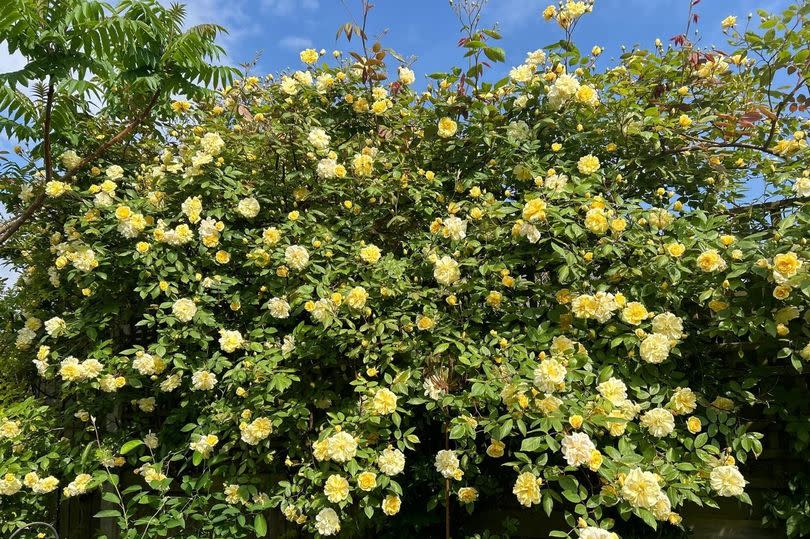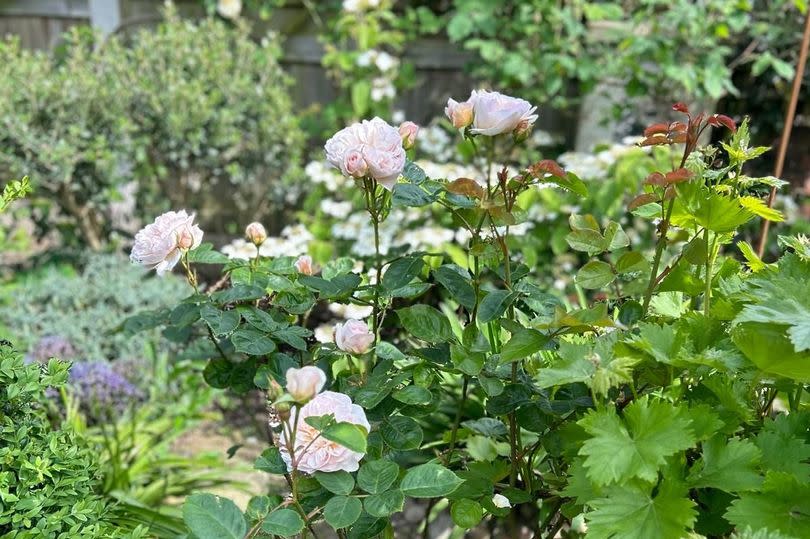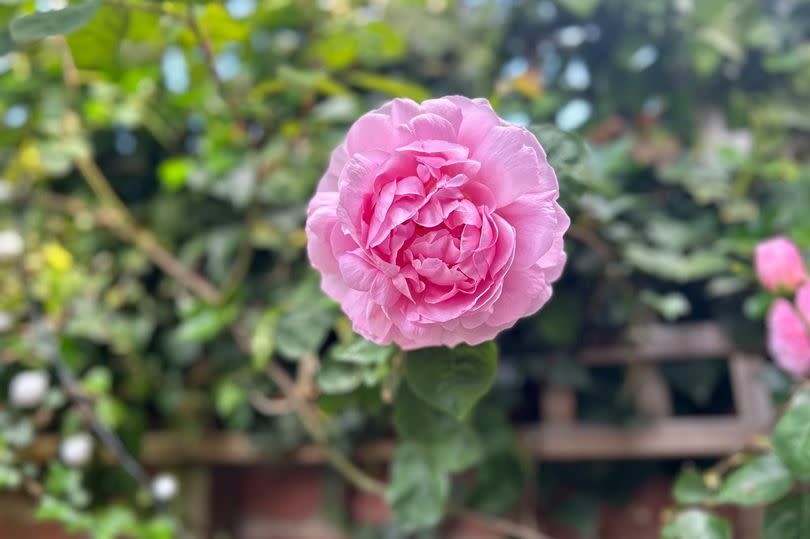Expert explains how to keep your roses beautiful all summer long
Roses take pride of place in many people's gardens, adding colour, fragrance and a dash of romance to our backyards.
They come in several forms - shrubs, climbers, ramblers and standards - and there are over 300 species, as well as thousands of cultivars. To make the most of your roses and ensure they are looking their best all summer, a little love and attention is needed.
Thankfully, we have an expert on hand to guide us through. Karen Richards, a horticulturalist with over 40 years of experience, kindly invited the ECHO to her beautiful garden in Wirral to give us her tips on caring for roses.
READ MORE: Enter our £1,000 Aldi voucher giveaway and go wild in the aisles
READ MORE: Taylor Swift Anfield tickets are still available before the star arrives next week
First things first: feeding and watering. Karen feeds her 'repeat rambler' rose once a month with a rose fertiliser. She said: "You should water everything well, put the fertiliser down and then do a top dressing of farmyard manure.
"Make sure the farmyard manure is two years old because if it's fresh, there will be urine in it which can damage the plant. So make sure it's well rotted."
Karen's repeat rambler is a Malvern Hills variety, bearing soft yellow flowers. She said: "What I love about a repeat rambler like this is they're not over in six weeks. As long as you deadhead them when they've finished flowering, they'll bloom again in the late summer and you will have another spectacular display.

"Deadheading is crucial. To deadhead, you simply count three leaves down from the head and then cut. But only do that when the full rosette of flowers has finished blooming."
Karen, who works at Gordale Garden Centre, uses the repeat rambler as a structure for other plants to climb on. She points to a clymatis starting to come through - a Polish Spirit variety which she says will bloom "once there are no flowers left on the rose plant".
According to Karen, providing good structure and direction for rose stems is important because it ensures they flower to their full potential.
She explained: "Don't let rambling roses grow upwards. A lot of people will buy a trellis and try to push it up. But that's no good. A rose always gets to the top and flowers. When the stems come up you should lay them across an arch. By making the branches arched, the plant will flower all the way along."
Pruning is another important area for rose care. Pointing at her David Austin Emily Bronte shrub rose, which was in full bloom during the ECHO's visit, Karen says she "prunes it back in the autumn, by about half".

She says it's useful to think of a wine glass shape when shaping your rose shrub, adding: "It's really important to make sure the air can go through the plant because you don't want it to get mildew".
As any gardener knows, you always have to be on the lookout for signs of disease or pests attacking your roses.
Karen says that these days, roses are prone to the fungal disease black spot. She said: "If you notice black spot, make sure you clean up all the debris in autumn and take off any leaves. I go round with a glass of wine and have a little slurp as I'm picking the leaves off!"
She continued: "If you notice yellowing on the leaves, it could be any number of things. It could be the feed you're using, or the plant could be drying out."

Karen's Munstead Wood rose plant started to yellow last year, and its leaves gained a rusty-coloured hue. She said: "the leaves had little pustules on them that were powdery and bright orange".
Her solution was to "cut it right the way back". She said: "I fed it, top dressed it and gave it a good water. Then it flowered again later on in the summer."
Greenfly is a constant concern for rose growers. According to Karen, key signs are curled leaves that look 'knobbled'. She advises simply picking off the leaves and pinching out plants rather than using pesticides.
She said: "I don't spray - especially not at this time of the year when the fledglings are around and birds are gathering food for their little ones. I love my birds and I don't want them to get ill."
Receive the latest shopping news and reviews straight to your email by signing up here

 Yahoo News
Yahoo News 
